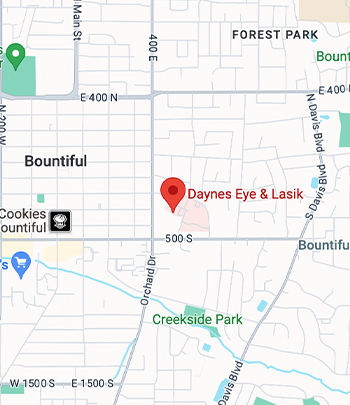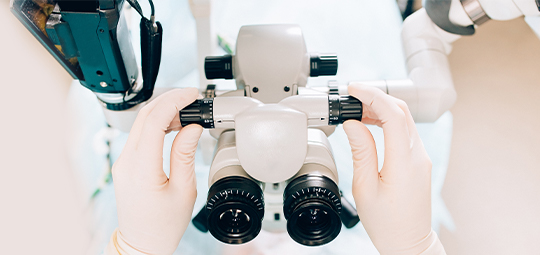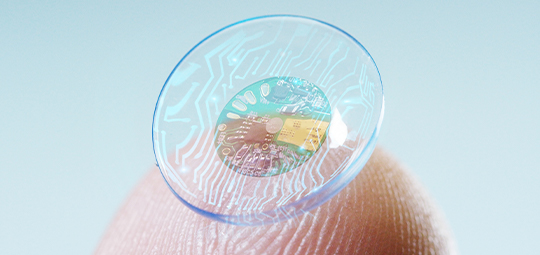Comprehensive, Preventive Care
Eye exams are an important part of preventive health care. We provide a thorough checkup for not only the state of your vision, but also the health and comfort of your eyes. Visual acuity is important, but assessing the health of the internal and external structures of your eyes is imperative as well.
Regular exams allow our ophthalmologist to look for early signs of eye disease. Many conditions that lead to vision loss do not show symptoms at first, so seeing an ophthalmologist is essential for detecting and preventing eye diseases.
Our thorough approach establishes a baseline for your vision and your ocular health, allowing us to monitor your eyes over time and check for changes that may indicate the development of eye diseases. We’ll always explain any recommended procedures or tests we provide.
Book AppointmentThe When & Why of Eye Exams
The American Acadamy of Ophthalmology recommends low-risk adult patients have an eye exam every 2 years until age 65, when they should have annual eye exams.
Patients who wear contacts, have a very high prescription, have a vision condition, or live with other health conditions like diabetes may need more frequent exams as recommended by their ophthalmologist. We will work with you to determine a personalized schedule.
Book AppointmentWhat Happens During an Eye Exam?
When you walk into our practice, you’ll be greeted by our friendly team. If you’re a new patient, we’ll ask questions about your health history, lifestyle, and current medications and answer any questions you have.
During your exam, we will thoroughly evaluate both the internal and external structures of your eyes using proven technology. We will measure your visual acuity to determine whether you need corrective lenses, and if you already have them, we’ll check that your prescription is up to date.
We may also assess your color vision, how well the eyes work as a team, depth perception, and the way your pupils respond to light. We use a hand-held ophthalmoscope, and a microscope called a slit lamp to examine your eyes.
With high-resolution fundus photography and ocular coherence tomography, we can capture images of the eye’s most important structures.
Images of your retina, macula, and optic nerve can give us an up-close look at the blood vessels and other internal structures in these areas, allowing us to observe any anomalies. Keeping the images on file lets us look for any changes between appointments, allowing us to detect and manage eye diseases like glaucoma or age-related macular degeneration.
Book Your Appointment Today
Even if you think you have perfect vision, it’s still important to have regular eye exams. Eye diseases can begin without easily noticeable symptoms, so comprehensive eye exams remain essential for assessing and detecting any early signs of sight-threatening conditions.
Prioritize your sight by booking a comprehensive eye exam today.
Book Appointment





